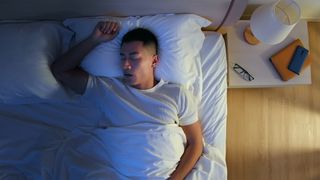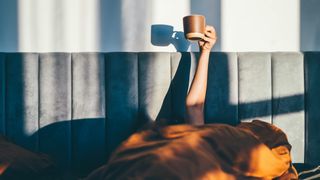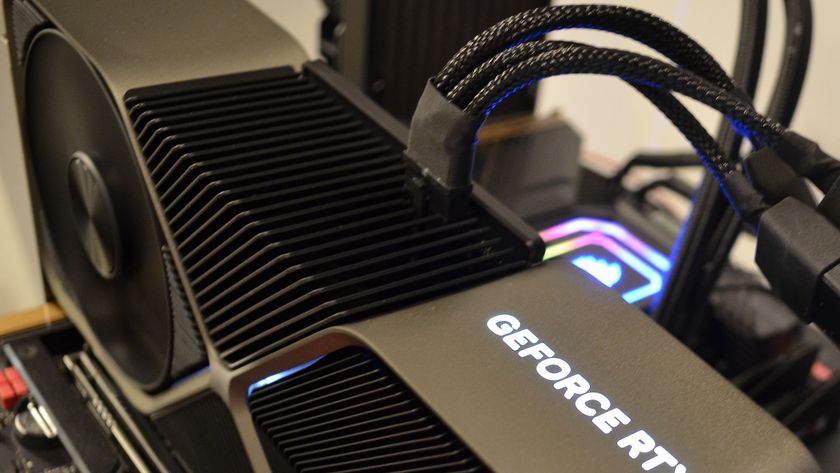How to create a bedtime routine for way better sleep
Following a relaxing bedtime routine each night boosts your chances of sleeping better

In our always-on society, falling asleep and waking up feeling refreshed is easier said than done. A million things can get in the way of good shut-eye, but if you have a good bedtime routine for adults on your side, you’ll be able to sleep better a lot more regularly. Yes, as research shows, it turns out that kids are onto something with bedtime routines. Well, their folks are.
Set a nightly bedtime reminder
Keep your new routine for 30 nights straight to make it a habit
30-60 minute routines give you time to unwind without rushing
Pick activities that relax your mind and body
If you’re struggling to sleep, adopting a relaxing bedtime will help. How? Because they signal to your brain that it's time to unwind and drift off.
Nightly routines don’t work their most potent magic straight away – you’ll need to stick with them for at least 30 nights to make them habit – but they’ll relax you more each night. The more relaxed you are slipping into bed, the better your chances are of sleeping well.
Here we scoop up all the essential tips you need to create a relaxing bedtime routine for adults, plus we look at the biggest dos and don’ts.
Of course, how comfy you are in bed can also impact how well you sleep, so check out our best mattress guide if you suspect yours isn’t up to scratch.
What is a bedtime routine for adults?
Nightly routines involve various wind-down activities that help us feel secure, relaxed and ready for sleep. Routines can last from 30 to 60 minutes, though sleep doctors don’t recommend anything longer than an hour otherwise you risk setting yourself up for sleep anxiety.
For your bedtime routine to be most effective, aim to start it at the same time every evening. For example, if you need 7.5 hours of sleep a night to feel refreshed and you have to be up at 6am for work, and you’re happy with a 30-minute nightly routine, start it at 10pm.
Get daily insight, inspiration and deals in your inbox
Sign up for breaking news, reviews, opinion, top tech deals, and more.

Be consistent too. In other words, stick to your routine night after night until it becomes your new normal. Bedtime routines often require lifestyle tweaks that take place much earlier in the day. So that could be having your last cup of coffee at 2pm if caffeine keeps you awake at night.
Relaxing bedtime routine activities for adults
The name of the game is to help you unwind and in a headspace where sleep comes more easily. So think about what makes you feel relaxed.
If it’s playing sudoku on your phone, great! But switch your device to night mode or wear blue light-blocking orange glasses so that you don’t disturb your circadian rhythm.
Here are some other things you could try as part of your wind-down routine:
1. Write a to-do list for the next day. Research shows this is effective for calming a racing mind before bed.
2. Read a book. For us, the more boring the read, the faster we drop off.
3. Take a warm bath with lavender essential oil (known for its calming effects). Scientists have found that a warm bath can trigger a drop in body temperature which kick-starts feelings of sleepiness.
4. Do some gentle stretching, light yoga or yoga nidra.
5. Try a relaxing body scan meditation, or follow a guided meditation for sleep.
6. Prepare your lunch and your outfit for the next day.
7. Quietly tidy up your kitchen so that surfaces are clutter free for the morning.
8. Write in a gratitude journal so that your brain in a positive place going to bed.
9. Listen to music that calms you. One study on music that helps people sleep said that music helped 62% of respondents drift off.
10. Get into your PJs, turn down your bed, dim the lights, then practice a deep-breathing exercise such as Box Breathe:
How do bedtime routines help you sleep better?
The brain responds well to habits, so a nightly bedtime routine is ideal for sending the right signals (and reinforcing them). Keeping to a routine also helps you unwind, de-stress and lessen any anxious thoughts that could keep you awake. This is important because numerous studies point to a link between stress and sleep problems.
So put in place things that calm your brain. This could be simple things such as checking to make sure that all the doors are locked, or prepping your outfit for the next day. The less you have to worry about, the better you'll sleep. There's some evidence suggesting nostalgia can help sleep, so try returning to a beloved childhood memory.
While it may take you a while to get into the swing of a new bedtime routine (set an alarm to remind you in the early days), before too long you’ll see the benefits. And not just at bedtime, but the next day too, as your mood, focus and energy levels should improve because you’re sleeping better.
How long should bedtime routines for adults last?
From our experience, an effective bedtime routine for adults lasts for around 30-60 minutes. If it runs any longer, it will take over your evening and may make you feel anxious about sleeping because you’ve invested so much time in preparing for it. Any shorter than 30 minutes and you might feel rushed.
Keeping it between 30-60 minutes will also train your body and mind to relax within this time. The more you stick to it, the easier it will get to relax before bed, which in turn will make it easier for you to drift off.

What can ruin your relaxing bedtime routine?
There are a few things that can derail your lovely bedtime routine, and most of these you will have heard about already. In no particular order they are:
Bright lights, hot rooms and clutter: Your bedroom is your sleep palace, so if it’s too hot or the lights are too bright, or you have clutter everywhere, even the world’s most relaxing bedtime routine is going to find it hard to win out.
So dim the lights in your bedroom and bring the temperature down to around 64.4 degrees Fahrenheit or 18 degrees Celsius an hour before bedtime.
If the light coming into your bedroom from the street outside is too bright, consider buying some blackout curtains or adding a blackout lining to your existing ones.
Caffeine: When it comes to being wide awake in the small hours, caffeine is a major culprit. If you know that caffeine keeps you up, aim to have your last cup by midday, as it can take from five to 10 hours (if you're sensitive to it) for the effects to wear off.
Also look out for hidden caffeine in tea, chocolate or sodas. Having a herbal infusion in the evening is a good addition to any bedtime routine, and many have ingredients, such as chamomile and valerian, to promote sleepiness.

Heavy tech use right up until bed: For some people, the blue light given off by digital screens can disrupt the body’s natural circadian rhythms that help us sleep. Switching off screens an hour before bedtime, or using your device on its night mode setting, enables your brain to wind down and not be stimulated by blue light.
It can be hard to switch off from work, so aim to close your laptop two hours before bedtime and put it out of sight, out of mind. Worried you might forget something for the next day? Make a note of it on paper, ready to action in the morning.
Feeling wired with stress: Lowering stress and anxiety levels is key to a good night’s sleep, so if you bundle into bed feeling wired, you won’t drift off easily.
Letting go of physical and mental tension by practising a few simple stretches, or taking time to focus on deep breathing, can produce brilliant results fast. Read our guide on how to fall asleep faster for more pointers.
You’re hitting the HIIT right before bed: There are some people who can fall into bed right after a crossfit challenge and sleep for seven hours straight. But for the majority, gunning vigorous exercise so close to bed is a recipe for delayed sleep.
For intense exercise, earlier in the evening is better (morning is best). Proper cardio training is superb for helping you to sleep better at night, so definitely experiment with what types of physical activity have the best impact on your snooze.
Bedtime routines for adults: dos and don'ts
Here are some final dos and don'ts to help you create a brilliant bedtime routine for the best snooze of your life:
- Don’t eat a big meal too close to bedtime. Eating a large amount of food less than three hours before trying to sleep puts your body into digestion mode, not sleep mode. Your body also struggles to digest efficiently when you lie down after eating, potentially leading to acid reflux.
- Do keep a sleep diary. Making note of the day’s activities, as well as timings of your sleep routine, will help you recognise patterns and see what works.
- Don’t drink alcohol close to bedtime. Booze can lead to disruptive REM sleep, plus tiredness and poor concentration the next day.
- Do go easy on yourself. Worrying about sleep only worsens the anxiety, so put a plan in place to speak to your doctor to if sleeplessness is getting you down.
This article is part of TechRadar's Sleep Week 2021 (running from Sunday 31 October to Sunday 7 November), our in-depth look at sleep and how to snooze better. We've teamed up with experts in their field to bring you sleep techniques and tips to help you drift off easier, and have rounded-up the best sleep kit to transform your bedroom into a den of zen.
- The best Saatva mattress sales and discounts for luxury sleep for less
- Our guide to the biggest Nectar mattress discounts and sales
Grace Franks is an experienced sleep and mattress writer who has written for our sister sites Tom's Guide and T3, among other brands. She's interested in organic and eco-friendly sleep products, and how good sleep can improve our general wellbeing. When not writing about mattresses, Grace loves reading, creative writing, and practicing yoga.













